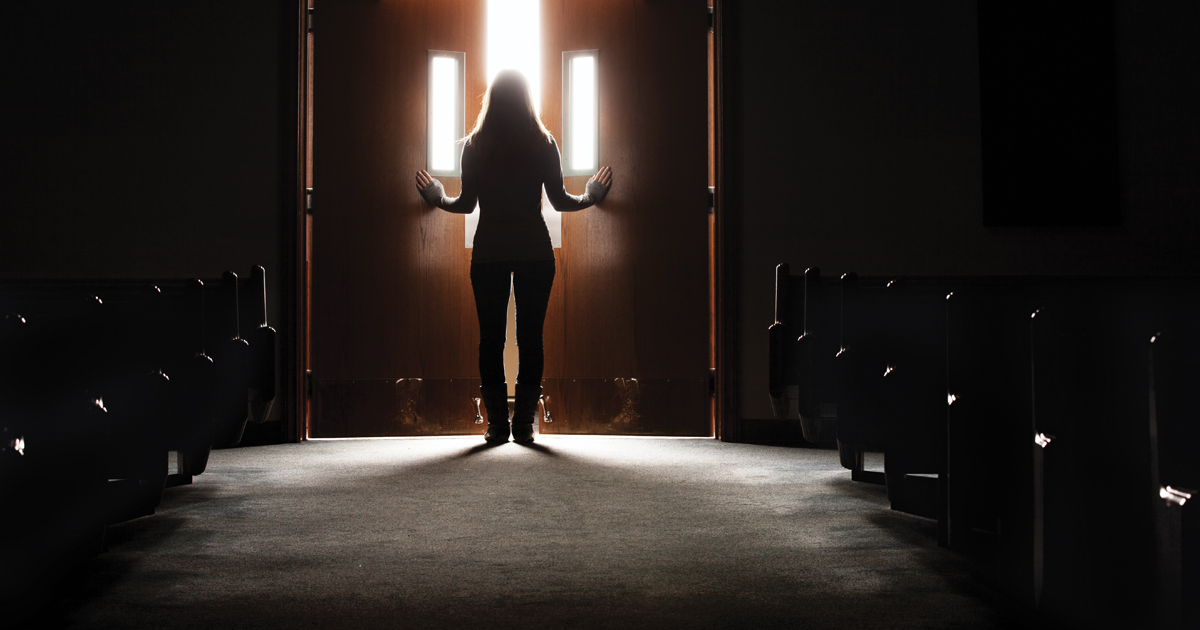I have long appreciated theologian Walter Brueggemann’s threefold manner of considering the Psalms. Psalms of orientation offer God unmitigated praise, reflecting gratitude for lives of stability. Their voices carry a sense of confidence about their relationship with God: “The Lord is … armed with strength; indeed, the world is established, firm and secure” (Psalm 93:1).
Many, many more psalms give voice to experiences of instability. Psalms of disorientation reflect crisis and suffering. Life has been turned upside down. Psalmists raise hard questions about God’s love and justice, making desperate demands of God to show up: “My God, my God, why have you forsaken me? Why are you so far from saving me, so far from my cries of anguish?” (Psalm 22:1). Let’s not mistake questions like this for a lack of faith. Such candid pleas and complaints are directed to, not away, from God. They can contribute to a deepening of faith.
When psalmists journey through, rather than around, suffering, they recognize that crisis is not a once-in-a-lifetime experience. Psalms of new orientation don’t contain answers to all the hard questions brought before God. What they do reflect is a new understanding of God forged through suffering disorientation: “Though I walk in the midst of trouble, you preserve my life” (Psalm 138:7). What has changed is that the psalmists hope in God, rather than in stability and human attempts to achieve it.
Orientation, disorientation and new orientation reflect not only our spiritual lives but our whole lives. In a world that is now far more complex than that of the psalmists, each remains true to life.
Deconstruction
Psalms of disorientation represent almost half of all the psalms. Yet, church communities tend to gravitate to psalms of orientation. Just as this practice misrepresents the whole course of our lives, it also fails to equip us to meet the needs of people experiencing disorientation.
This poor equipping, I think, is part of the reason for ex-vangelicalism, a movement away from evangelical churches. Let me explain.
There has never been a time when people haven’t left the church. It’s how The Salvation Army came to be. When William and Catherine Booth founded The Salvation Army, they were responding to needs not being met by established denominations.
Evangelicalism, too, is an outcome of denominational breaks. But while it swells in other parts of the world, it’s undergoing an exodus in an increasingly polarized North America. Strongest in the United States, where evangelicalism is linked with right-wing partisanship, ex-vangelicalism has a presence in Canada, too.
Just as evangelicalism has many forms and expressions, ex-vangelicalism has many causes. As I listen to ex-vangelicals, one thread weaves most causes together. Ex-vangelicals are grieved by the inadequacy of their churches in supporting them through orientation, disorientation and reorientation. They have found their communities limited by a plain-sense, selective reading of Scripture—something that has not met the complex, challenging questions life brings them. Desiring to think critically about doctrine and church culture, they have been dismissed as exhibiting a lack of faith and, often, respect for church leadership. Some put it plainly. They miss the good news. They want to be part of a community known by its love, not by judgmentalism.
Ex-vangelicals tend to struggle quietly before voicing discontent. Some “deconvert,” leaving Christian faith behind. Others leave one church for another. Still others remain, attempting to change the church from the inside.
The latter two groups engage in what is popularly called a process of “deconstructing” and “reconstructing” their faith, something like the psalmist’s move from disorientation to new orientation. When their house built on sand washes away with the storm, they take an inventory of their beliefs. Desiring to place their hope in God, they reconstruct their faith by discerning what is essential and what can be discarded. Increasingly, reconstructing ex-vangelicals are seeking each other’s company.
Disturbing the Present
Deconstruction and reconstruction raise obvious flags. They threaten the stability of church culture. But stability has become a catalyst for decline—as we’ve discovered through the territory’s Mobilize 2.0 transformation project.
When Catherine Booth said, “If we are to better the future, we must disturb the present,” she wasn’t talking about disturbing The Salvation Army. But seven generations on, it’s time to turn that question around. Are we open to disturbing our present?
What are the needs ex-vangelicals demonstrate that we are not meeting today? Can we accept deconstruction and reconstruction as legitimate parts of Christian life? How can we better care for people, particularly those experiencing disorientation and new orientation? Let’s ponder these questions as we work toward flourishing communities.
Dr. Aimee Patterson is a Christian ethics consultant at The Salvation Army Ethics Centre in Winnipeg.
Photo: Prixel Creative/Lightstock.com
Look for a follow-up article by Dr. Patterson in the May/June 2022 issue of Salvationist.
This story is from:










Leave a Comment